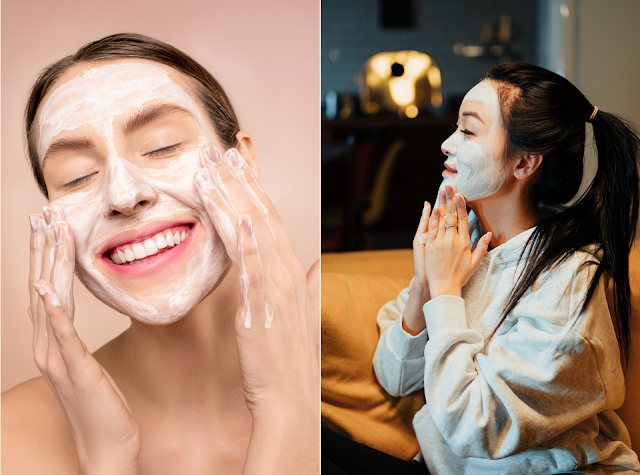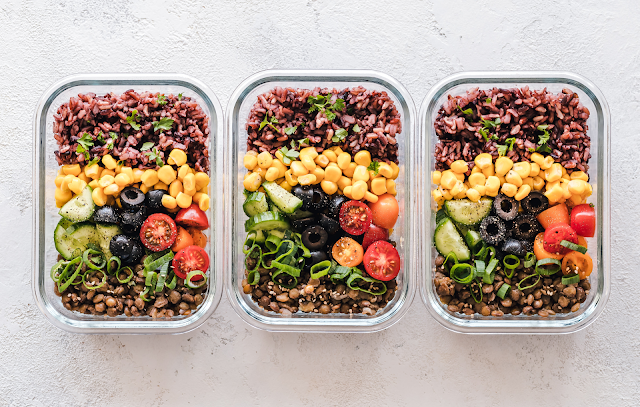Daily Skin Care Routine: Is It Necessary?
Daily Skin Care Routine: Is It Necessary?
Taking a good care of your skin is very important part of your health. Some general tips for maintaining healthy skin include:
- Cleanse Your Skin Regularly: Use a non-irritating or gentle cleanser to remove oil, makeup and dirt. Always avoid hot water, as it can really strip your skin’s natural oils.
- Protect Your Skin From the Sun: Use a broad-spectrum sunscreen with an SPF of at least 30 when spending time outdoors, especially between the hours of 10 a.m. and 4 p.m. Always seek shade and consider wearing protective clothing.
- Moisturize Your Skin: Use a moisturizer to help keep your skin hydrated and to protect it from drying out. Always consider your skin type before choosing a moisturizer.
- Avoid Picking at Your Skin: Picking at your skin can cause irritation and increase the risk of scarring and infection.
- Eat a Healthy Diet: A healthy diet that includes a variety of fruits, vegetables, and whole grains can help to improve the appearance of your skin.
- Stay Hydrated: For healthy and hydrated skin, drink plenty of water.
If you have specific skin concerns, such as acne or eczema, it’s a good idea to talk to a dermatologist or other healthcare professional for personalized advice and treatment options.
Skin Cleansing
Cleansing your skin is an important step in maintaining healthy skin. Cleansing helps to remove dirt, oil, and makeup from the surface of your skin, which can help to prevent clogged pores and acne.
To cleanse your skin, follow these steps:
- Wet your face with lukewarm water. Your skin’s natural oils can be stripped due to hot water.
- Apply a small amount of a gentle, non-irritating cleanser to your face.
- Always use circular motion to gently massage the cleanser onto your skin. Avoid hard scrubbing techniques, as these can harm your skin.
- Use Lukewarm water to rinse your face, and then use clean towel to pat dry.
- Follow up with a toner, if desired. Toner can help to balance pH of the skin and it can also remove the impurities.
It is very important to choose a good cleanser that is best suited for your skin type. For example, if you have dry or sensitive skin, you may want to choose a gentle, moisturizing cleanser. If you have oily skin, you may want to choose a cleanser that contains salicylic acid or other acne-fighting ingredients.
Cleanse your skin twice a day. In the morning and at night. It is great to cleanse your skin after exercise or sweating.
Sun Protection
Sun protection is an important aspect of maintaining healthy skin. The sun’s ultraviolet (UV) rays can damage your skin, increasing the risk of skin cancer and premature aging. To protect your skin from the sun, you can take the following steps:
- Use Sunscreen: Use a broad-spectrum sunscreen with an SPF of at least 30 on all exposed skin when spending time outdoors, especially between the hours of 10 a.m. and 4 p.m. Be sure to apply enough sunscreen to cover your skin completely and to reapply every two hours or immediately after swimming or sweating.
- Wear Protective Clothing: When possible, wear protective clothing such as a wide-brimmed hat, long-sleeved shirt, and pants to cover your skin. Choose clothing made of tightly woven fabrics, as they can offer more protection from the sun’s rays.
- Seek Shade: Seek shade, especially during peak sun hours, to protect your skin from the sun’s rays.
- Wear Sunglasses: Wear sunglasses that block at least 99% of UVA and UVB rays to protect your eyes and the delicate skin around them.
By taking these steps, you can help to protect your skin from the sun’s harmful rays and reduce your risk of skin cancer and other skin problems. It’s also a good idea to regularly check your skin for any changes or abnormalities and to see a dermatologist for regular skin exams.
Skin Moisturizing
Moisturizer is a good way to keep your skin healthy and hydrated. Moisturizing can help to protect your skin from drying out, which can lead to irritation and other skin problems.
To moisturize your skin, follow these steps:
- Cleanse Your Skin: First, cleanse your skin to remove dirt, oil, and makeup. Use non-irritating cleanser and rinse your skin with lukewarm water.
- Pat Your Skin Dry: Use a clean cloth or towel to pat your skin dry. And avoid rubbing as it can harm your skin.
- Apply a Moisturizer: Always consider your skin type before choosing a moisturizer which is appropriate for your skin. If you have sensitive and dry skin, you should choose a emollient and thicker moisturizer. If you have acne or an oily skin then you may should choose an oil-free and lighter moisturizer.
- Massage the Moisturizer into Your Skin: Gently massage the moisturizer into your skin using circular motions. Be sure to apply the moisturizer to all areas of your face and neck.
It’s generally recommended to moisturize your skin at least twice a day, once in the morning and once at night. It’s also a good idea to moisturize your skin after cleansing, showering, or swimming to help lock in moisture. If you have specific skin concerns, such as acne or eczema, it’s a good idea to talk to a dermatologist or other healthcare professional for personalized advice and treatment options.
Healthy Diet for Healthy Skin
Eating a healthy diet can help to improve the appearance of your skin and may also help to reduce the risk of certain skin problems, such as acne and eczema.
To promote healthy skin, it’s important to eat a balanced diet that includes a variety of foods from all the different food groups. This can include:
- Vegetables & Fruits: You should Aim for 5 servings of a different vegetables and fruits per day. These foods are rich in vitamins, minerals, and antioxidants that can help to nourish your skin.
- Whole Grains: Make whole grains a part of your diet for example; oats, whole wheat, brown rice and quinoa. Do not use refined grains such as pasta and white bread. Whole grains are rich in fiber, which can help to promote healthy digestion and skin.
- Lean Proteins: Always choose lean proteins like turkey, chicken, beans, tofu and fish. These foods are rich in amino acids that can help to build and repair skin tissue.
- Low-Fat Dairy: Choose fat-free or low fat milk, cheese and yogurt. Dairy products are rich in calcium and other nutrients that can help to keep your skin healthy.
- Healthy Fats: Always use a diet that include healthy fats for example avocados, olive oil, seeds and nuts. These foods are rich in healthy fats that can help to moisturize and protect your skin.
It’s also important to pay attention to portion sizes and to limit your intake of added sugars, salt, and unhealthy fats. If you have specific skin concerns, it’s a good idea to talk to a registered dietitian or nutritionist for personalized advice.



